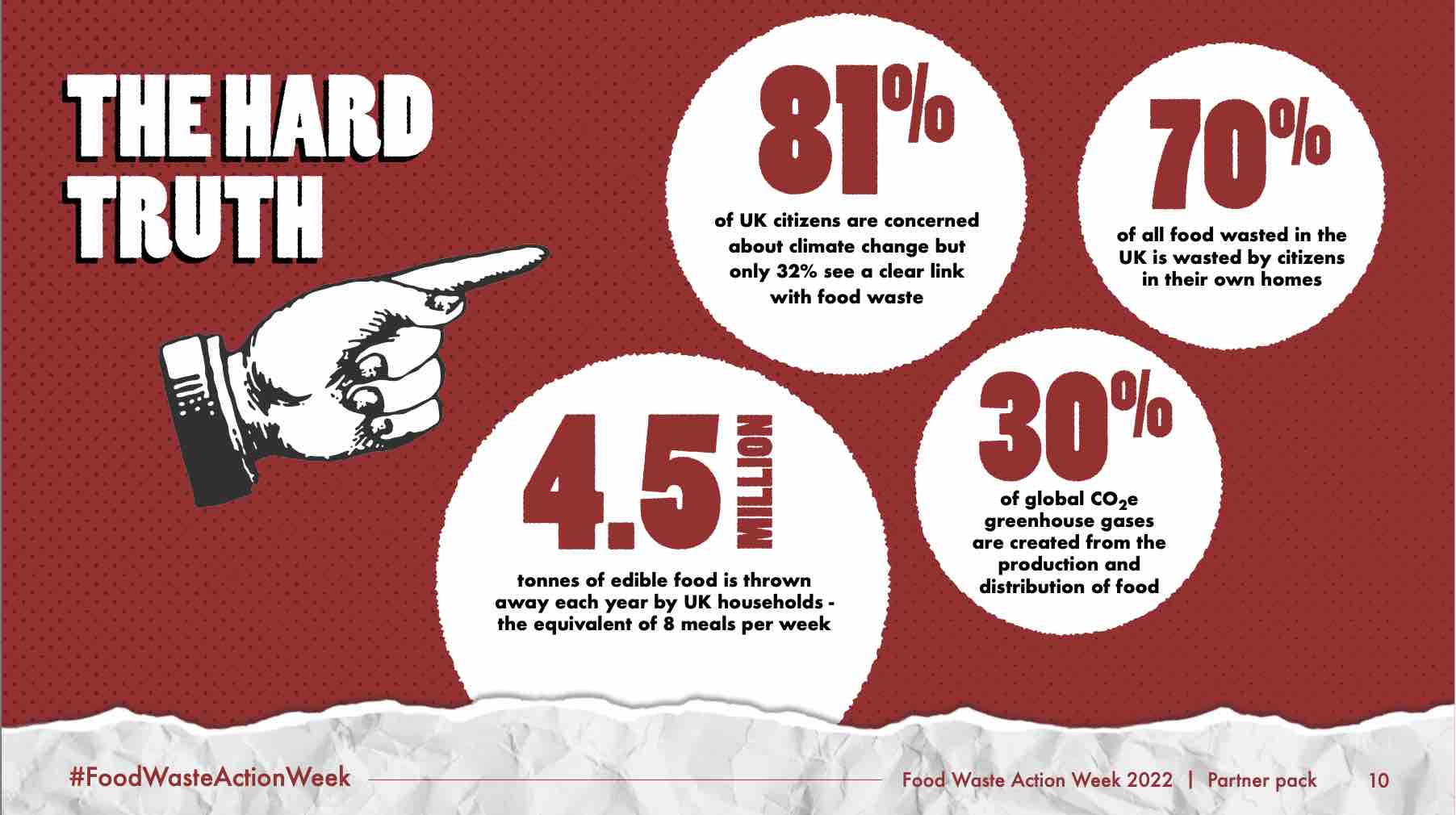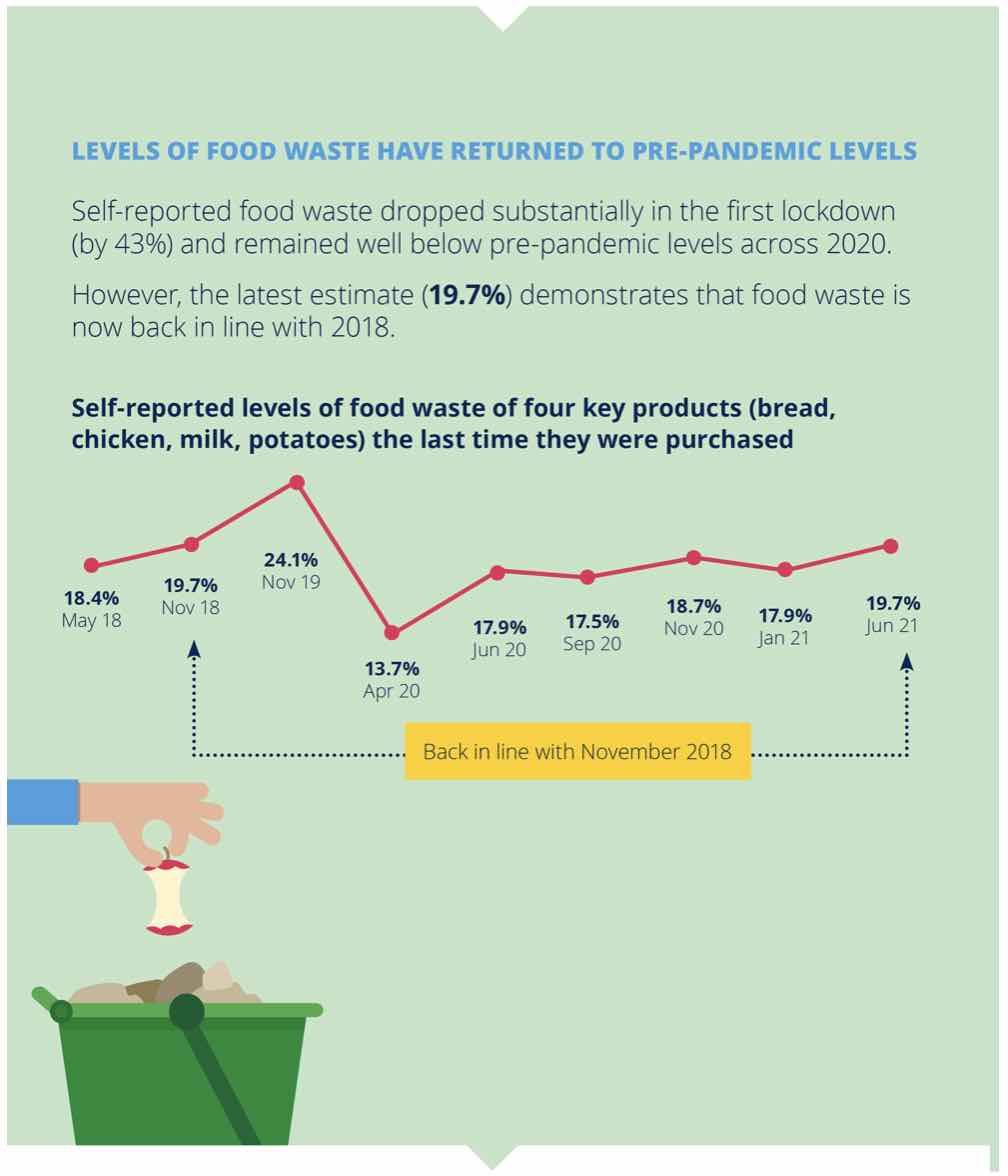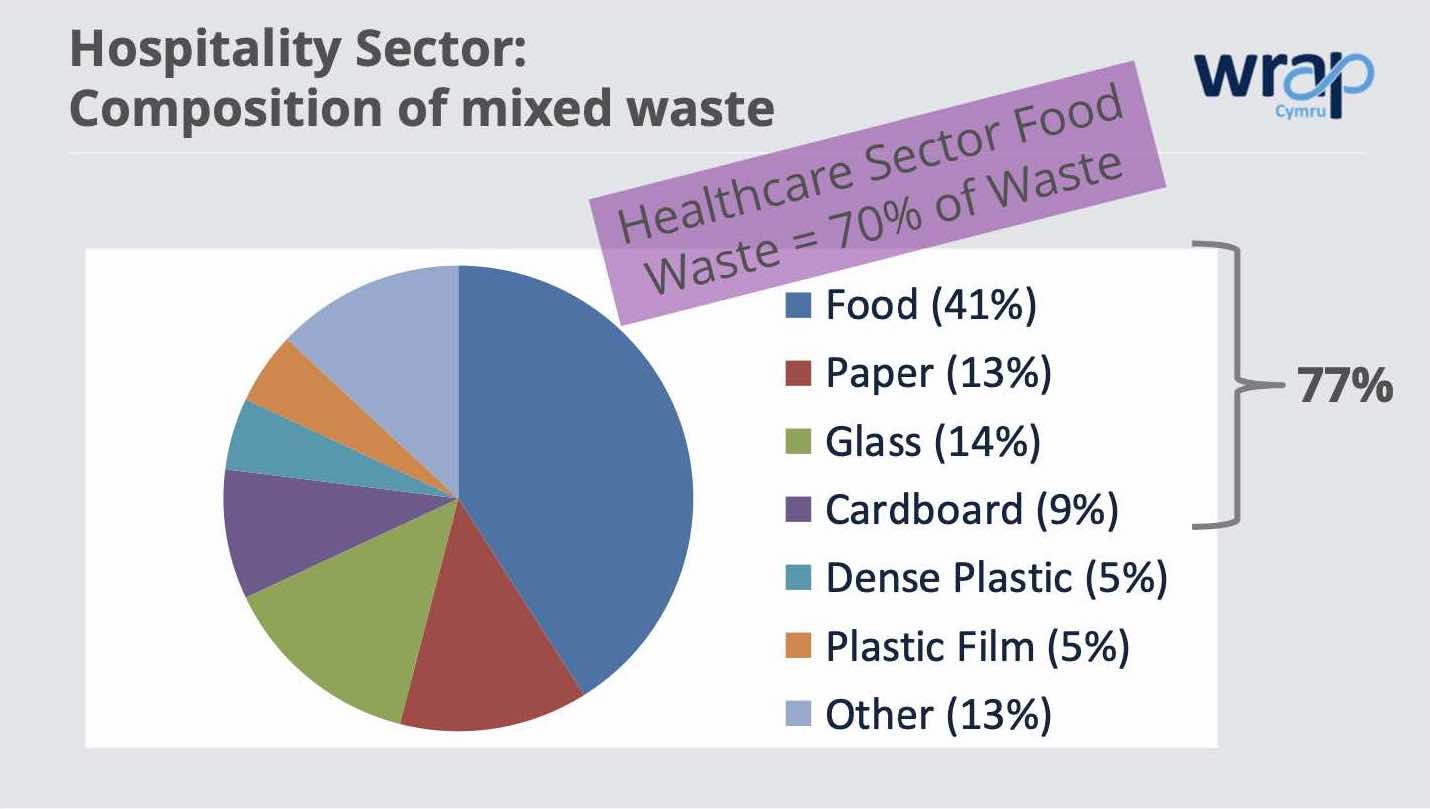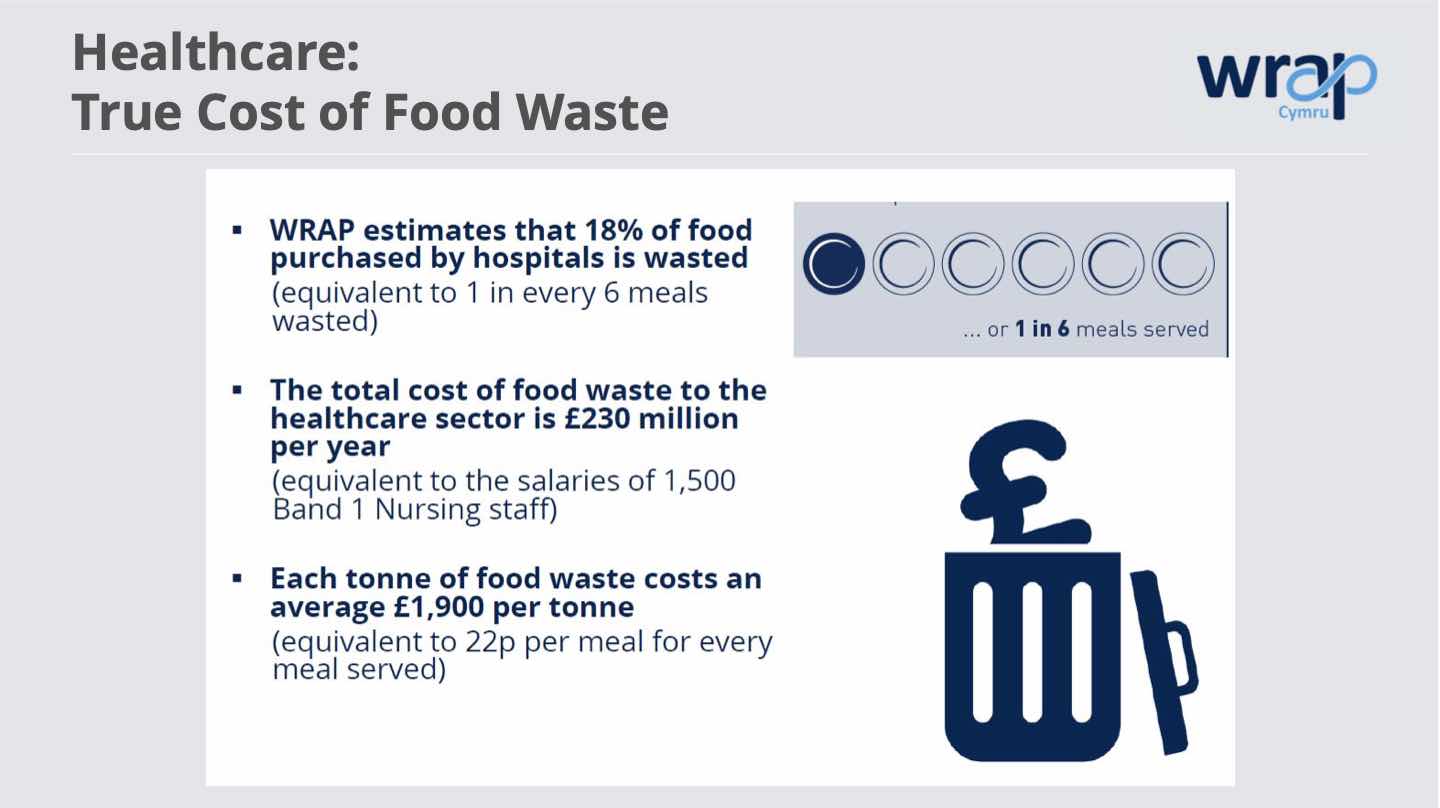
Food waste action week: How health professionals can take action
When we discard expired yoghurt, bruised apples, or leftover milk, we are not only wasting food, but also the labour, water and energy involved in producing, processing, transporting, preparing, storing, and selling these products. Not only does food waste cost us money, but it also has a negative environmental impact.
Why is food waste a problem?
Food wastage is problematic from both a moral and economic point of view. In the UK, households throw away 4.5 million tonnes of edible food each year, worth £14 billion. Much of the world's food waste ends up in landfills, where it decomposes without oxygen, creating methane, a greenhouse gas more potent than carbon dioxide. According to Project Drawdown, increasing worldwide composting levels could prevent landfill methane emissions equivalent to 2.1–3.1 billion tonnes of carbon dioxide by 2050.

Image source: Food Waste Action Week Partner Kit
While the pandemic helped us adopt good food management behaviours - mainly freezing, using leftovers and batch cooking - we sadly returned to our less glorious old habits. Indeed, food waste appears to be rising once again and has now returned to pre-lockdown levels.
 Image source: Food waste trends survey
Image source: Food waste trends survey
Foodwaste in the UK Healthcare sector
With the NHS commitment to achieve net zero carbon emissions by 2040, and net zero within its supply chain by 2045, more sustainable practices are high on the agenda. In regard to their commitments to high standards of patient care, focusing on food and nutrition makes sense.
Food waste is a large part of the waste management problem and a very real challenge for healthcare facilities. According to the NHS Hospital Food Review, food waste costs £230 million annually, which represents 39% of the total food budget including food procurement, labour, utilities and waste management costs of the UK healthcare sector. Wasting food is like throwing away valuable budget that is badly needed elsewhere. In 2018 and 2019, 14 million kilograms of unserved meals were thrown away. As plate waste is not being measured nationally, the true scale of food waste in hospitals is likely to be significantly higher.
"The shocking reality is that, while many hospitals record levels of food waste under 10%, the true picture is that over 60% is actually being wasted, costing an eye-opening 22p of every meal."

 Image source: Preventing Food Waste in the UK Health Sector - Hugh Jones, WRAP, 27 June 2017
Image source: Preventing Food Waste in the UK Health Sector - Hugh Jones, WRAP, 27 June 2017
What taking a step toward ‘good’ food waste management in healthcare facilities looks like
- Use the Department for Environment, Food and Rural Affairs (Defra) A plan for public procurement: food and catering: the balanced scorecard’ and the Public Services (Social Value) Act across the NHS for the procurement of food and all catering services
- NHS trusts need to agree on a common method of data monitoring and reporting for food waste nationally and across all their facilities
- Adopt food waste minimisation plans and offer supporting materials and tools for each facility
What can you do as a healthcare professional?
- Consider how your actions and services can impact meal times and patient appetite and how you can directly support your patients during meals
- Ask for the support of other health and care professions - housekeeping, carers, ward hosts and healthcare assistants - to contribute to food waste management and reduction
- Ensure that your healthcare facility’s administration and directors comply with food waste regulations and cut carbon costs
- Campaign to raise awareness on food waste in the healthcare sector and advocate for better food and nutrition planning
- Petition that your local healthcare facility passes on excess food to local organisations, local soup kitchens or hospital staff working night shifts
Key resources to preventing waste in the healthcare sector
- Hospital caterers can access free advice on how to tackle food waste by watching these four screencasts produced by WRAP and developed with the Hospital Caterers Association (HCA)
- A food waste guide and calculator can help your healthcare facility comply with food waste regulations and cut your carbon costs
- Incorporate the tips from the "Where you can make a positive impact towards net zero", a guide from the NHS England Greener Allied Health Professional hub on Food and Nutrition
- Read the "Preventing food waste in the UK health sector" presentation
- Read Clare Pettinger’s blog post on Sustainable eating: how Allied Health Professionals can reduce the environmental impact of food and diet
What is Food Waste Action Week?
The aim of Food Waste Action Week is to create lasting change that helps to deliver the UN Sustainable Development Goal of halving global food waste by 2030.
Love Food Hate Waste is a campaign run by the environmental charity Waste & Resources Action Programme (WRAP) with the aim of reducing the amount of food waste in the United Kingdom. Last year, they dedicated a whole week of action to raising awareness on food waste and its environmental consequences. In 2022, they are once again on a mission to change the way we think about waste with their Food Waste Action Week.
What is happening on Food Waste Action Week?
This year the attention is on the hidden heroes that dwell in most British kitchens - Fridges, freezers, microwaves; they can all assist us to reduce food waste in our homes.
Tips on how to cut down food waste
- Plan ahead and only buy what you need.
- Make good use of your freezer instead of throwing food away. You can defrost it later.
- Get creative with recipes and leftover cooking.
- Know your labels to avoid unnecessary waste. Sell-by date, is the time when the product must be sold to the customer. And it is different then Use-by date that indicates when the food items should be consumed by. The packaging will usually also detail how long the items can be frozen for.
- Share your meal with a colleague or friend
- Discover how to compost at home or locate a composting site near you. It is anticipated that a home composting bin can divert around 150 kilogrammes of organic waste per family each year.
Food Waste Organisations
- The Real Junk Food Project redistributes surplus food from various hospitality and retail industries to schools, organisations and charities.
- Too Good To Go lets you know what restaurants in your area offer food at a highly reduced price.
- Fare share combats food waste by redistributing goods to charities across the UK.
- The Felix Project works with supermarkets and hospitality venues to collect fresh produce that cannot be sold and donates them to charities, food banks or local schools.
Leftover recipe idea
According to a recent study by River Cottage, the most commonly wasted items are bread, milk, potatoes, cheese, and apples.
Well, three of these ingredients are needed in my favourite childhood comfort food. Let me introduce you to the ‘Bettelmann’. It is a very old pastry from the east of France, made with leftover stale bread, cake, brioche - or a mix of them all - as well as seasonal fruits. It traditionally appeared on days without meat and was eaten as a main dish, preceded by a vegetable soup (another good leftover dish! And did you know that you can eat cauliflower leaves and make a delicious broth from vegetable scraps?). Today, it makes a good dessert and will help you reduce waste. And you don’t need to rely on seasonal fruits if you planned ahead and froze some along the year. Remember the bruised apple I introduced at the beginning of this post, well it’s time to grab it and make some wonder with it!
Guest Author
Sara Lemaitre
Sara is a holistic health student with an interest in Sustainability and Ecology. Combining education with creativity to connect people and nature.

